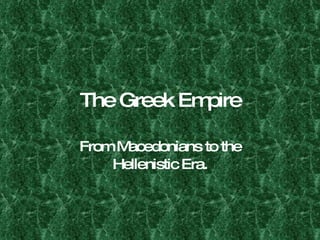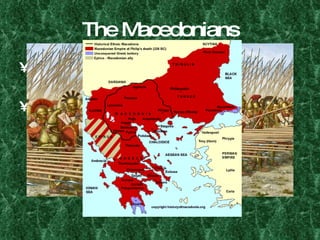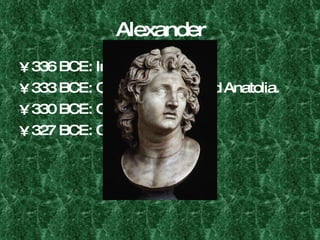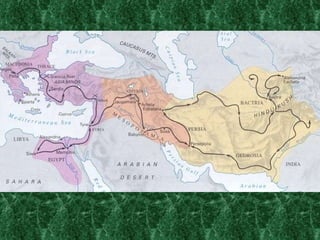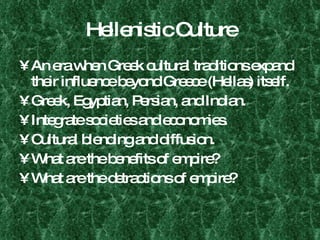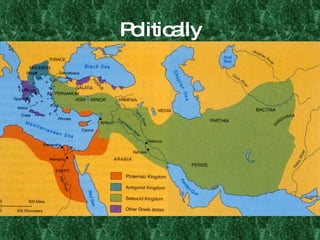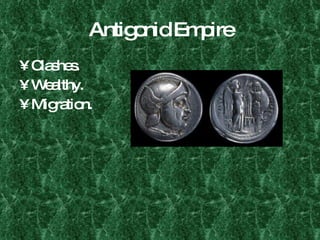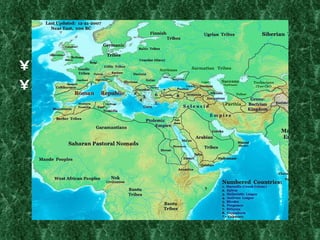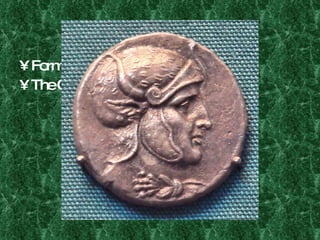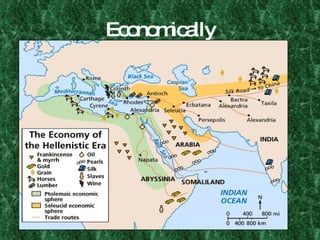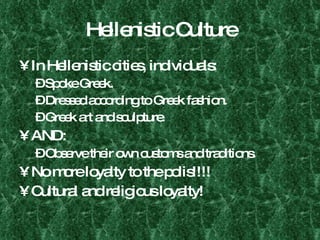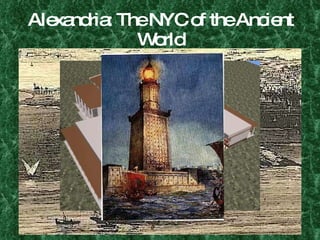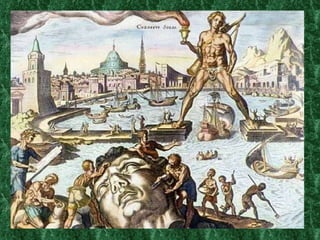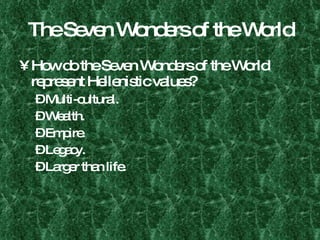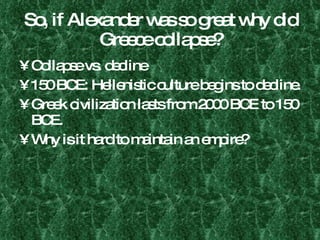Alexander the great to the hellenistic era
- 1. The Greek Empire From Macedonians to the Hellenistic Era.
- 2. The Macedonians Frontier state north of the Greek penninsula. 359-336 BCE King Philip II: Strong military, big sights. 338 BCE: Conquers all of Greece. 336 BCE: Assassinated.
- 3. Alexander 336 BCE: Inherits the throne. 333 BCE: Conquers Ionia and Anatolia. 330 BCE: Conquers Persia. 327 BCE: Conquers Indus?
- 4. ╠²
- 5. Hellenistic Culture An era when Greek cultural traditions expand their influence beyond Greece (Hellas) itself. Greek, Egyptian, Persian, and Indian. Integrate societies and economies. Cultural blending and diffusion. What are the benefits of empire? What are the detractions of empire?
- 6. Politically 275 BCE: After the death of Alexander, empire divided into three: Antigonus: Greece and Macedonia. Ptolemy: Egypt Seleucus: Anatolia to Indus.
- 7. Antigonid Empire Clashes. Wealthy. Migration.
- 8. Ptolemaic Egypt Wealthiest: Agriculture, industry, and taxes. Alexandria and megalopolis.
- 9. Seleucid Empire Former Persian Empire. The ŌĆ£suburbsŌĆØ of the Greek empire.
- 10. Economically Large empire allows for trade to expand. Caravans and Persia and Bactria (India). Seas and Mediterranean Empire. Rise of luxury products.
- 11. Hellenistic Culture In Hellenistic cities, individuals: Spoke Greek. Dressed according to Greek fashion. Greek art and sculpture. AND: Observe their own customs and traditions. No more loyalty to the polis!!!! Cultural and religious loyalty!
- 12. Alexandria: The NYC of the Ancient World Egyptian city. Center of Hellenistic culture. Center of commerce. 500,000 international occupants. Breathtaking. Avenues, statues, library, lighthouse, museum. Alexander and the glass coffin.
- 13. Culture Philosophy: Zeno and Stoicism vs. Epicurus and Epicureanism. Skeptics????? History: Seven Wonders of the World, Herodotus. What does it mean when a culture begins to look back? Art: Realism. Religion: Mysticism, Cult of Osiris.
- 14. The Seven Wonders of the World How do the Seven Wonders of the World represent Hellenistic values? Multi-cultural. Wealth. Empire. Legacy. Larger than life.
- 15. So, if Alexander was so great why did Greece collapse? Collapse vs. decline 150 BCE: Hellenistic culture begins to decline. Greek civilization lasts from 2000 BCE to 150 BCE. Why is it hard to maintain an empire?
